Nibali reveals illness before mountain time trial at Giro d'Italia
Italian claims second overall title in Turin
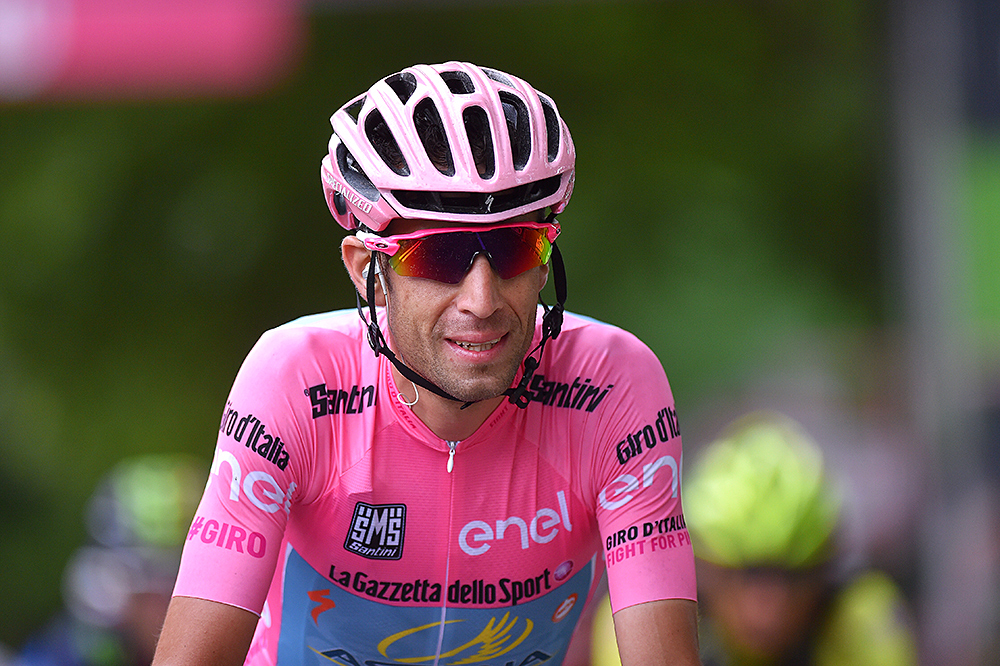
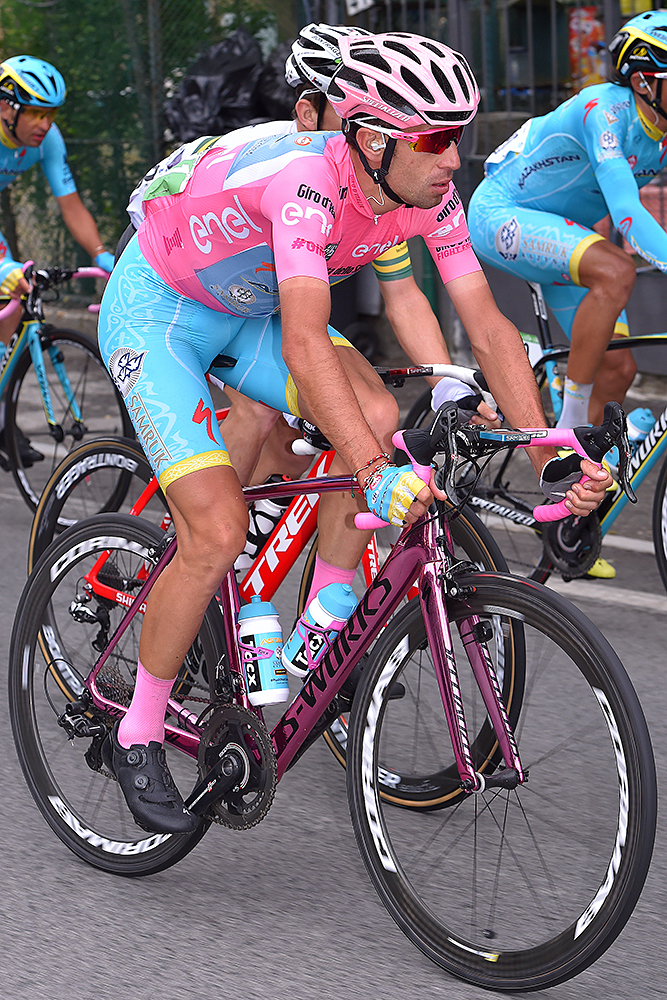
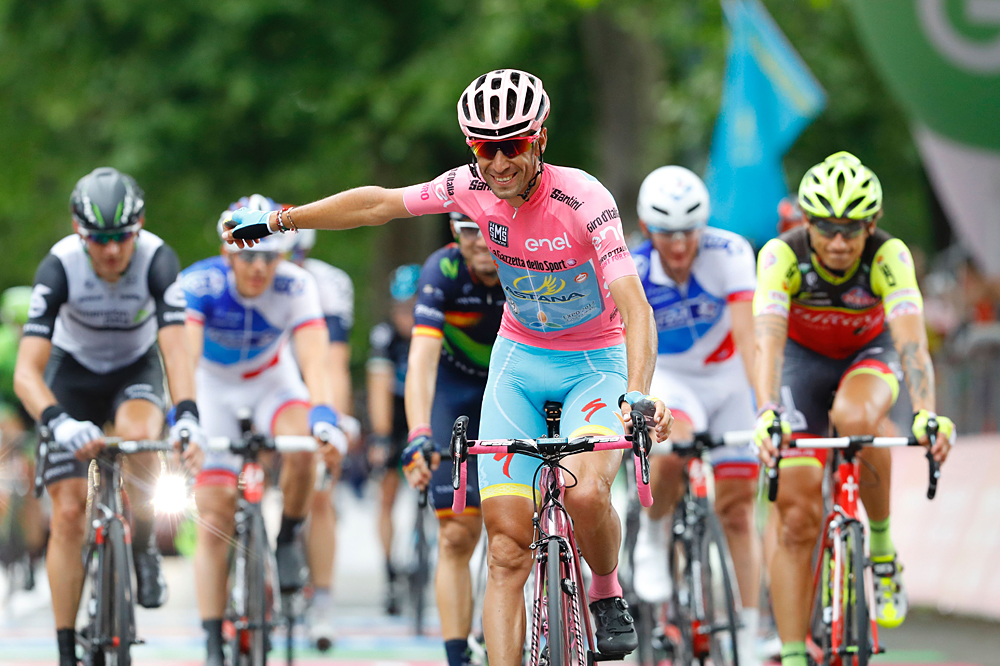
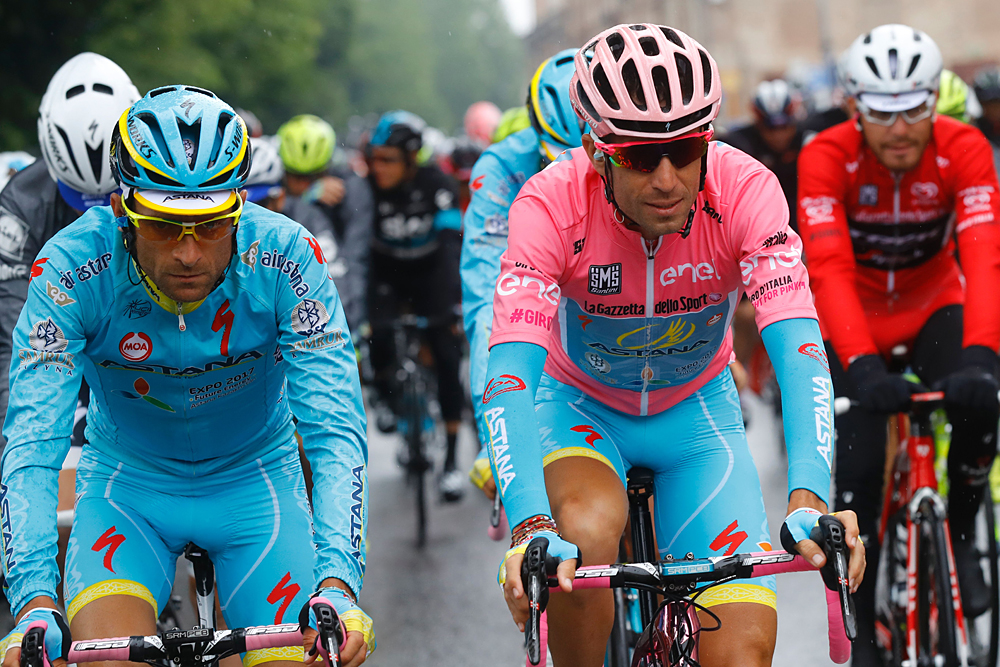
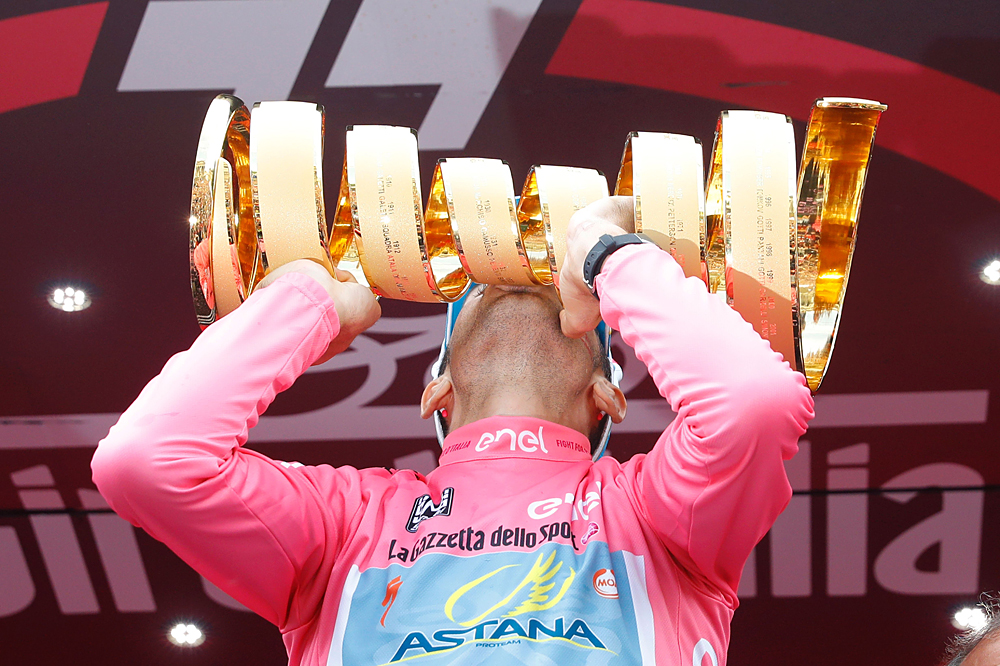
The remarkable swing in Vincenzo Nibali's fortunes in the dying days of the Giro d'Italia is already drawing comparisons with comebacks past, such as Fausto Coppi's on the Stelvio in 1953 or Charly Gaul's on the Piccolo San Bernardo six years later.
And, like those sepia-tinted exploits, it might take years or even decades for the full story of Nibali's turnaround to be told, but some details did begin to emerge as he mounted the podium in Turin on Sunday afternoon to accept the Trofeo Senza Fine.
Speaking at the finish, Astana coach Paolo Slongo revealed that Nibali had suffered from a bout of dysentery on the eve of the mountain time trial, which was to prove his most trying moment of this Giro, as he shipped 2:10 to maglia rosa Steven Kruijswijk (LottoNL-Jumbo).
"Before the time trial I wasn't very well on account of intestinal problems, but I didn't say anything because I didn't want my rivals to know it," Nibali said by way of confirmation. "I had some intestinal problems but I tried to put it to the back of my mind at the time. Maybe that was what weakened me slightly. But the rest day was useful for putting me right."
Nibali's travails continued at Andalo when the race resumed after the rest day, however, and Astana decided to send him for further tests to investigate if an underlying health problem could explain his subdued performances in the opening two weeks. "But I never said I wanted to go home," Nibali told reporters on Sunday afternoon following stage 21. "It was you who wrote that."
The turning point of Nibali's Giro – a race he could ill afford to lose in the wider context of his career and likely departure from Astana at year's end – came under cover of cloud atop the Colle dell'Agnello. Up to that point, Kruijswijk had appeared impregnable as the Giro's leader, but a crash at the beginning of the descent was to prove ruinous, and ultimately swung the race in Nibali's favour. Would he have won the Giro had Kruisjwijk stayed on his bike?
"It would have been difficult," Nibali admitted. "But I can say that on the last three kilometres of the Agnello, I was the one who attacked. I noticed something that maybe the others hadn't spotted: I saw the maglia rosa was suffering near the top and breathing heavily. I understood that I could attack and put pressure on him on the descent.
The latest race content, interviews, features, reviews and expert buying guides, direct to your inbox!
"The descent is a place to attack for me, just like a climb. If I hadn't put him under pressure on the descent, nothing would have happened and maybe Chaves would have tried something on Risoul. But at the top of the Agnello, I realised I could turn it all around."
Nibali placed great store, too, on the simple fact that the two decisive stages in the Alps took place at such high altitude, pointing out that he was not affected by pollen allergies when the road climbed above 2,000 metres. "When I was warming up before the stage yesterday, I was sneezing a lot because of my allergies, but the problem doesn't exist at high altitude," he said. "On top of that, I've trained a lot at altitude, so I'm quite used to making big efforts up there."
More on this story:
Giro d’Italia stage 21 highlights – Video
Giro d’Italia state 21 – Finish line quotes
Another significant change in Nibali's Giro seemingly came the previous evening. His father Salvatore told RAI television on Sunday afternoon that the Italian champion had reverted to 172.5mm cranks ahead of the final three stages, having switched to 175mm cranks at the beginning of this season. Another piece found, but the jigsaw may never be completed.
Tour and Olympics
Nibali was wary of discussing the future during his winner's press conference on Sunday evening, neatly batting away a question on his rumoured switch to the new Bahrain-backed team by pointing out that UCI rules forbid any such discussion until after August 1.
He did confirm that he will line out at the Tour de France alongside Fabio Aru in July, though he was reluctant to talk in any depth about his aspirations at the Grande Boucle, beyond noting that he would be there to support his younger teammate. "The big objective is the Olympics," Nibali said.
One reporter asked if Nibali had been thinking of the Rio Olympics while he stood to attention for the Inno di Mameli, the Italian national anthem, as he stood atop the podium, with his young daughter Emma by his side clutching the Giro's wolf mascot.
"No," Nibali said with a laugh. "I was only thinking of enjoying the moment, appreciating the crowds and keeping an eye on my child."
Watch 2016 Giro d'Italia stage 21 highlights video
To subscribe to the Cyclingnews video channel, please click here.

Barry Ryan was Head of Features at Cyclingnews. He has covered professional cycling since 2010, reporting from the Tour de France, Giro d’Italia and events from Argentina to Japan. His writing has appeared in The Independent, Procycling and Cycling Plus. He is the author of The Ascent: Sean Kelly, Stephen Roche and the Rise of Irish Cycling’s Golden Generation, published by Gill Books.